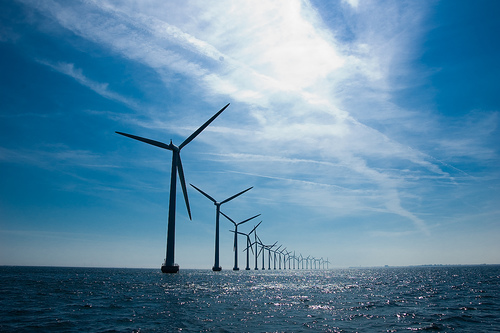When my info-larder gets too packed, it’s time to serve up some choice nuggets from around the Web.
—————-
 Get ’em while they’re hot. • I’ve been writing a lot recently about how industrial agriculture is screwing up the climate (see here and here). I keep forgetting to add: a warmed-up climate will almost surely take its revenge against industrial ag.
Get ’em while they’re hot. • I’ve been writing a lot recently about how industrial agriculture is screwing up the climate (see here and here). I keep forgetting to add: a warmed-up climate will almost surely take its revenge against industrial ag.
• In my back-and-forth with Ezra Klein about whether organic veggies are more nutritious than ones grown with synthetic toxins (start here and work backwards, if you must), Klein basically argued: 1) I believe the British study that says they’re roughly equivalent (and ignore other studies that contradict it); and 2) I really don’t care that much; I just want people to eat more vegetables, and organics are more expensive and thus a harder sell.
But why not want people to eat more vegetables, but choose organic when they can? Because … organics are more nutritious than conventional (and have lower levels of nitrogen, a possible toxin), according to a new study from the French Agency for Food Safety. (Interestingly, the British study came from the UK’s equivalent of the FDA; and the new study comes from France’s FDA.)
Better yet, rather than use one’s pundit cred to urge people to change personal behavior, why not agitate for policy change: more government R&D support for organic ag, less for conventional, etc.? If your beef with organic is that it’s more expense and prices low-income people out of the market, why not push policies that make it cheaper? After all, federal ag policy now makes highly processed food cheaper by subsidizing the two key inputs: corn and soy. An promoting organic ag would have benefits in multiple directions. For example, it would lower use of toxic pesticides and greenhouse gas-spewing (and fish-killing) synthetic nitrogen.
A brief note: in the blogosphere, the general reaction to my debate with Klein seemed to be: Philpott’s missing the point; there are many reasons to choose organic, so why focus on nutrition? (See here, for example.) My response: food and agriculture are endlessly complicated and contain a tangle of issues; nutrition is one of them; and it can and should be discussed without neglecting all the many others.
• The Nation devoted its Sept. 21 issue, already available online, to food. This is the venerable magazine’s second food issue ever; the first came out three years ago, and I wrote about it here. I haven’t had a chance to dig in yet; looks like there’s some fantastic content. I’ll probably be commenting on some of it soon.
• I haven’t read Ellen Ruppel Shell’s book Cheap yet either, but I doubt this LA Times op-ed hack job by Charlotte Allen does it justice.
Judging from this interview with Ruppel Shell by Grist’s own Vanessa Kerr, the author wants us to think about the hidden costs of the cheap stuff we blithely consume: the carbon- and mercury-rich coal that goes up in smoke to power China’s gadget factories, the farm workers who live in poverty to put lettuce on Big Macs.
Allen ignores all of this and simply asks, like a slack-jawed teenager defending some deplorable habit, “What’s wrong with low prices?”
• The blogger El Dragon of Fair Food Fight points to an obvious problem with low prices–maintaining them relies on a relentless attack on wages that leads in extreme cases to modern-day slavery, here in the United States.
El Dragon directs us to this disturbing report: the Justice Department has accused a Hawaiian vegetable farm called Aloun Farm with “conspiracy to commit forced labor and visa fraud.” That’s a nice way of saying slavery. According to the press release:
The charges arise from the defendants’ alleged scheme to coerce the labor and services of Thai nationals brought by the defendants to Hawaii to work under the federal agricultural guest worker program.
It should be noted that Aloun Farm markets itself as a locavore institution. From its website:
Aloun Farm’s mission is to provide the people of Hawaii with the highest quality of locally grown produce.
Given that Hawaii’s few working vegetable farms have to compete with produce shipped in from California–whose vast farms are also generally staffed by low-wage migrant workers–it’s not so surprising that this one resorted to slavery. And therein lies a major problem with an economic system predicated on driving down prices.
• Speaking of El Dragon, turns out his real name is Barth Anderson (not to be confused with sometime Grist blogger Bart Anderson), and he has a post up on HuffPo sparring with Michael Pollan over the Whole Foods/John Mackey/healthcare controversy. For those who haven’t followed the story: Whole Foods CEO John Mackey penned a Randian screed on the Wall Street Journal op-ed page promoting “personal responsibility” (by which I think he meant shopping at Whole Foods) as the best alternative to real healthcare reform. (Fetishizing the creed of personal responsibility is a bit much, coming from a man who once assumed an Internet identity to pump up his own firm’s share price and talk down that of a competitor, which he was simultaneously trying to buy.) A bunch of Whole Foods shoppers freaked out and launched a boycott. Michael Pollan publicly rebuked the boycott, arguing that Whole Foods’ support of farmers outweighs its CEO’s retrograde political views. I suppose Anderson’s riposte wins on points. My take: I reject Mackey’s warmed-over Ayn Rand take on healthcare and unions (do adults really take Rand seriously? I thought she wrote for disturbed teenagers). I deplore Whole Foods’ active lobbying to gut the Employee Free Choice Act. But I don’t shop there much anyway. I can’t be bothered to actively boycott Whole Foods–or denounce those who do.



